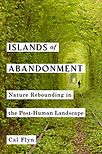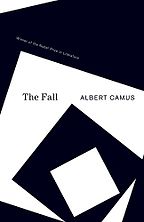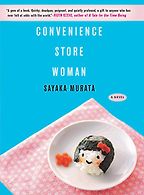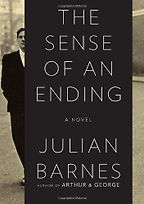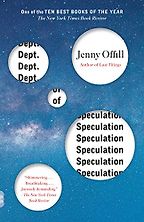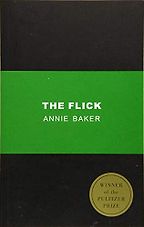When we first went into lockdown, there was a great deal of discussion about all the time we would suddenly have – the house decorating we’d finally get done, the novels we’d finally finish writing and the massive tomes that we’d finally get around to reading. At Five Books we were no different. Indeed, we took the time to recommend the best long books to read in lockdown, including staff favourites War and Peace, and Ulysses. Since then, however, more and more people have been complaining that, despite expectations, they have been getting far less reading done than they hoped, or are struggling to make headway on any books at all.
Recently, I saw the author Sophy Roberts posting on social media about the curated ‘lockdown library’ she had commissioned from the book consultants Vellum: one hundred books “no thicker than a mobile phone” that could be read over a long bath or sleepless night. I thought: what a wonderful idea. And I’ve set myself a similar task here, although with a little more leeway. Here’s a list of very good, very short books that, with a fair wind, one might hope to read over the course of day – or alternatively, if one’s attention span is shot to hell, might actually make it to the end of.
Very short classic books
Many of the books in the literary canon are surprisingly brief. So why not tackle some of the most pint-sized classics, if you’re looking for easily achievable reading goals? I am, personally, quite easily intimidated by anything classified as one of the ‘classics’ (a psychological quirk I can’t really explain, given that I’ll very happily lug a thousand-page contemporary novel like Lucy Ellmann’s spectacular Ducks, Newburyport along on a beach holiday) so I find it very satisfying to tick bucket list books off the list with relative ease.
I could recommend you Steinbeck’s Of Mice and Men, Orwell’s Animal Farm or Kafka’s The Metamorphosis, all of which clock in at around 100 pages in length. But perhaps these are too obvious, as they are often set texts in high school. There’s also The Strange Case of Dr Jekyll & Mr Hyde, which is more novella than novel – around 75 pages, depending on the edition – which the horror aficionado Kim Newman described to us as “the best written” of the great classic horrors: “It’s amazingly intricate and perfectly structured,” he said, adding that the twist in the tale (spoiler alert: they are one and the same person) must have had a similar impact on first publication as the cinematic reveals of The Sixth Sense and Fight Club.
Five Books interviews are expensive to produce. If you're enjoying this interview, please support us by donating a small amount.
If you’re looking for something a bit different, I recently picked up Colette’s slim and sensual novel Chéri, which is around 120 pages long and might be quite easily consumed in a single, immersive sitting. It’s the story of a love affair between an ageing courtesan and an eligible, if rather spoilt, younger man set in Paris during the Belle Époque. The Guardian once declared that Colette, as a writer, has “more punch than Proust”; either way, Proust himself was a huge fan and wrote to Colette on the book’s publication to profess his admiration. And if you enjoy Chéri, then next on your list should be Margaret Duras’s The Lover, a sensational autobiographical novel of around 130 pages, about a French schoolgirl seduced by the scion of a wealthy Chinese family in what was then Indochina. It was an international bestseller on publication in 1984 and won France’s prestigious Prix Goncourt – an erotic, nostalgic story of forbidden love.
Or, sticking with my French theme, you might think about tackling one of Albert Camus’s existentialist novels. I can recommend The Stranger (sometimes The Outsider), although our expert interviewee Jamie Lombardi’s declared her particular favourite to be The Fall, in which the narrator witnesses a woman jumping to her death from a bridge and decides to keep walking. It’s believed to be inspired by his relationship with his wife. “I read it on a plane from New York to Amsterdam and I finished it with time to spare,” Lombardi told us in a discussion of the best Camus books. “It really speaks to the power of narrative and the way our understanding of our interpersonal conflicts helps to mediate our relationships, for better or worse.”
Another favourite of my own is Muriel Spark’s iconic story of a dazzlingly charismatic schoolteacher The Prime of Miss Jean Brodie. Set in a 1930s Edinburgh girls’ school and based on Spark’s own experiences, it was adapted into a 1969 film starring Maggie Smith in the titular role – for which she won an Oscar – but the original text is well worth reading. Very concise, it was initially published in the New Yorker and later repackaged as a novel. Indeed, most of Spark’s works are short, snappy, and very entertaining. I spoke to the Scottish intellectual Alan Taylor about the best books by Muriel Spark to mark her centenary in 2018, so you can find some further reading recommendations in that interview.
Very short contemporary novels
Plenty of contemporary writers tend towards concision, too. I’m a big fan of the Japanese writer Sayaka Murata’s fiction, and you can find me fangirling over her latest, rather shocking, novel, Earthlings, in my selection of the most notable novels of fall 2020. But if you’ve never read any of her work, I’d probably suggest you start with her breakout hit Convenience Store Woman, which explores many of the same themes (asexuality, nonconformity, relationships of convenience) in a less confronting context. It’s about a female shop worker who takes refuge in the scripted and impersonal nature of her job, and faces increasing pressure from her friends and family to marry and pursue a more challenging career. (Murata herself famously worked for years in a Tokyo convenience store.)
I also enjoyed – if that’s the right word – Han Kang’s The Vegetarian, which won the International Booker Prize in 2016. It’s a chilling allegorical story about a placid Korean wife who, following a series of disturbing dreams, decides to give up meat, only to be punished by her husband and family for her act of passive rebellion with increasing brutality. My copy is slim enough to slip into a handbag, and although it’s not an easy read, exactly, its quiet aura of menace has a transfixing quality.
At least two winners of The Booker Prize proper (by which I mean, the prize for books published in English, rather than fiction in translation) have been very short books – novels bordering on novellas. Julian Barnes‘ The Sense of an Ending is a haunting story that centres on the death of an old schoolfriend of the narrator, and a suicide note pronouncing that a free person “has a philosophical duty to examine the nature of their life, and may then choose to renounce it.” From there, a complex backstory unfolds, exploring the fallibility of memory, and how we all construct narratives of ourselves. It’s been many years since I read it, but certain aspects haunt me still, particularly one moonlit scene in which the characters watch the Severn Bore, a tidal phenomenon in which the flow of water in an estuary is briefly reversed.
Ian McEwan is well known for his short novels (he once told the New Yorker that he felt the novella was “the perfect form of prose fiction”) and his Booker-winning tale of sexual frustration On Chesil Beach sails in barely over the line, at around 55,000 words. A novella is usually considered to run between 20,000 and 40,000 words, although the boundary is somewhat blurred. I also have a particular soft spot for The Cement Garden, his perverse and incestuous first novel, in which four orphaned children decide to hide their mother’s death from the authorities by entombing her in concrete in their cellar. Horrifyingly good.
Fragmentary novels for fried minds
If you’re looking for a short book because of a poor attention span (thanks pandemic anxiety, doomscrolling, depression, stress, overwork and the endless interruptions of small children!) you might find yourself drawn to a book served in easily digestible chunks. We have plenty of short story recommendations elsewhere on the site, a short story being perfect if you have a spare half hour or so. (I myself have been carrying a copy of Primo Levi’s The Periodic Table in my jacket pocket for a couple of weeks, and taking it out in moments of stillness.)
Get the weekly Five Books newsletter
However, if you’re looking for a longer, book-length narrative to linger over, a fragmentary novel might be a perfect solution. Often unfolding as a collage of vignettes, lyrical snatches or brief monologues, this form of literature is perfect for the present moment, echoing the disjointed nature Covid-era living, and served in thin, savourable slivers. Some favourite recent examples of mine are Maggie Nelson’s Bluets, a strange and beautiful meditation on her love for the colour blue, tinged with sex and heartbreak, and broken down into hundreds of numbered parts; and Max Porter’s Grief is the Thing With Feathers, whose structure perfectly mirrors the fragmented experience of living through grief.
But my absolute favourite book of this kind, and perhaps my favourite book of all, is Jenny Offill’s Dept. of Speculation – a fraught, wise and very, very funny account of marital discord and creative crisis. It’s served in short, sometimes sentence-length segments, some directly reported and sometimes elliptical or koan-esque. Those who enjoyed her recent bestselling novel, Weather, will know what to expect, but in my opinion this earlier book is the original and best, and I must have read it dozens of times. I own it in hard copy, well-thumbed, and also as an ebook on my phone so I can carry it with me anywhere. I often return to it during periods of insomnia. If you haven’t already read it, I can’t recommend it enough.
Other very short reading experiences
McEwan, expanding on his enthusiasm for the shorter form, noted that “to sit with a novella is analogous to watching a play or a longish movie…both operating within the same useful constraints of economy.” Similarly, reading a script can also be a highly enjoyable manner in which to pass an hour or two; the perfectly-formed play is an immersive joy – plus stage directions exercise the imagination in unusual ways. Recently, after meeting her at a writer’s retreat, I began working my way through the back catalogue of the wonderful US playwright Annie Baker, beginning with her Pulitzer-winning drama set in a cinema auditorium The Flick. Baker is the master of the awkward silence, during which unspoken feelings can be tasted on the air – her characters being all the more appealing and realistic for their inability to express themselves. Though I am yet to see a live performance, reading the script offered a different medium in which to appreciate her skill.
I tend to read plays when I find I have a hour or two to spare and I want something to read that can fully immerse me and then be over within that timeframe. Graphic narratives fill a similar role in my reading life. There is a great selection of recommendations in our comics and graphic novels section, and I can personally recommend Nick Drnaso’s Sabrina, the first comic to be longlisted for the Booker, which is a tense graphic masterpiece about the aftermath of a gruesome murder. I also very much enjoyed the gentle comedy of Matthew Dooley’s Flake (winner of the 2020 Wodehouse Prize for Comic Writing) and Simon Stålenhag’s post-apocalyptic beauty The Electric State, which was shortlisted for the Arthur C Clarke Award for Science Fiction.
Whatever you find appealing in these chaotic times you should embrace. We’d love to hear what you’ve been reading lately, especially if it’s a book that’s broken a reading drought. Send us a tweet, comment on Facebook, or write us an email – we’re always delighted to speak to Five Books fans.
Five Books aims to keep its book recommendations and interviews up to date. If you are the interviewee and would like to update your choice of books (or even just what you say about them) please email us at [email protected]

